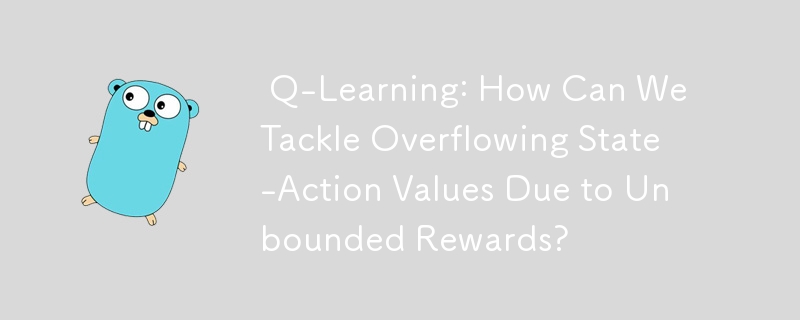

Q-Learning: Dealing with Exorbitant State-Action Values
Q-Learning, a reinforcement learning technique, aims to derive optimal policies by iteratively updating state-action values. However, in certain scenarios, these values can become excessively high, posing a challenge for the algorithm's stability and effectiveness.
In your case, you noticed that the state-action values in your Q-Learning implementation were overflowing due to their extremely high magnitudes. This is attributed to the reward function you employ, which assigns positive rewards for each time step in the game.
The underlying issue here lies in the goal of reinforcement learning: maximizing the expected total reward. With the current reward structure, the optimal policy for the agent is to prolong the game indefinitely, leading to unbounded rewards and inflated state-action values.
To address this, you can modify the reward function to incentivize winning. For instance, you could assign a small negative reward for each time step, thereby encouraging the agent to prioritize ending the game and achieving victory.
By modifying the reward function in this manner, you steer the algorithm towards maximizing the total reward while simultaneously addressing the issue of overflowing state-action values. The adjusted model you provided subsequently behaves as expected and exhibits more intelligent and reasonable decision-making.
This case study highlights the critical role of appropriately designing reward functions in reinforcement learning. The reward signal shapes the behavior of the algorithm, guiding it towards the desired objective. Misspecified reward functions can lead to unpredictable and unwanted consequences, hampering the effectiveness of the learning process.
The above is the detailed content of Q-Learning: How Can We Tackle Overflowing State-Action Values Due to Unbounded Rewards?. For more information, please follow other related articles on the PHP Chinese website!




